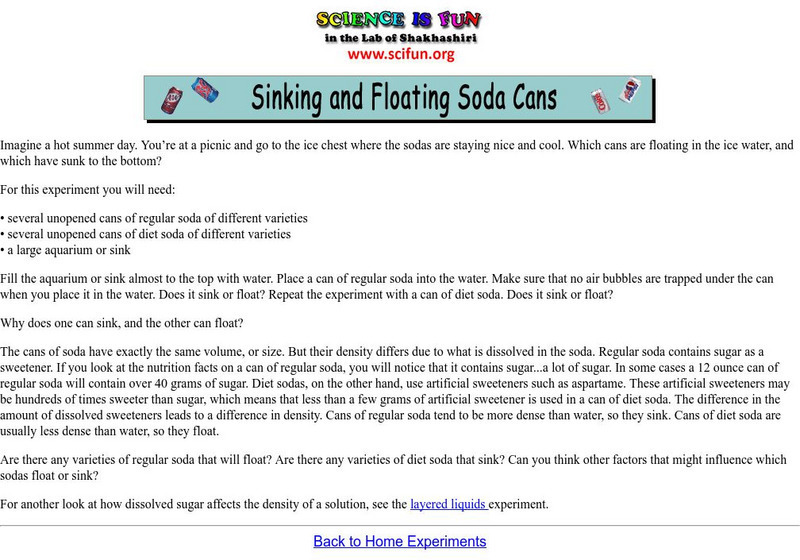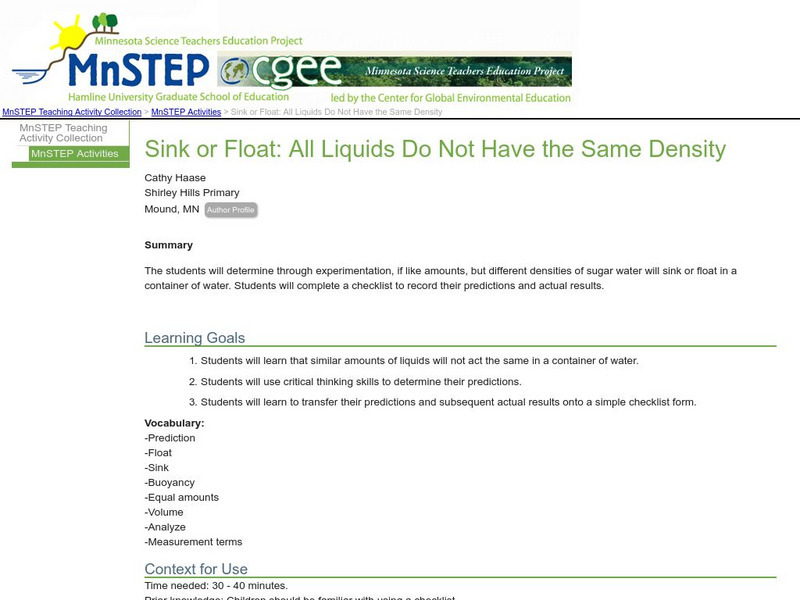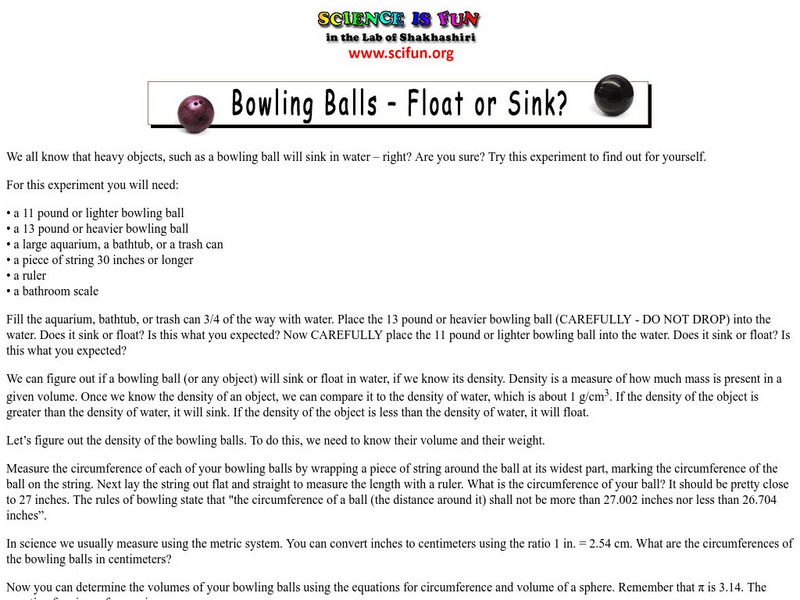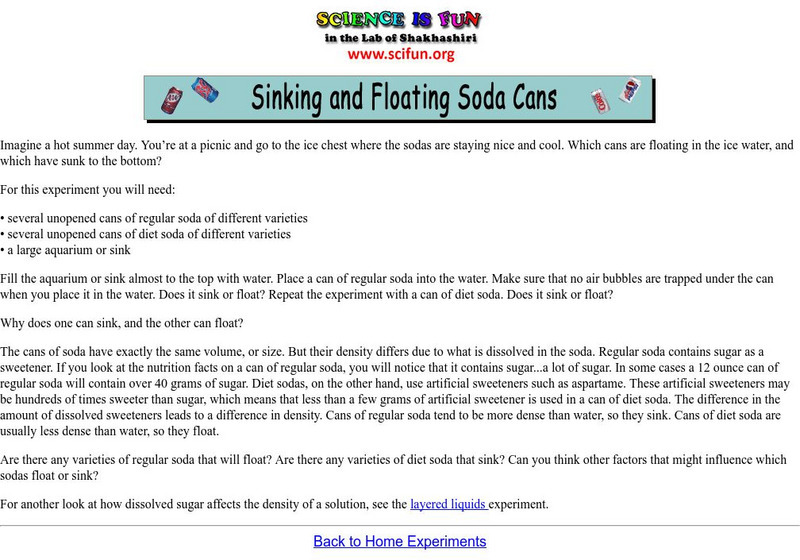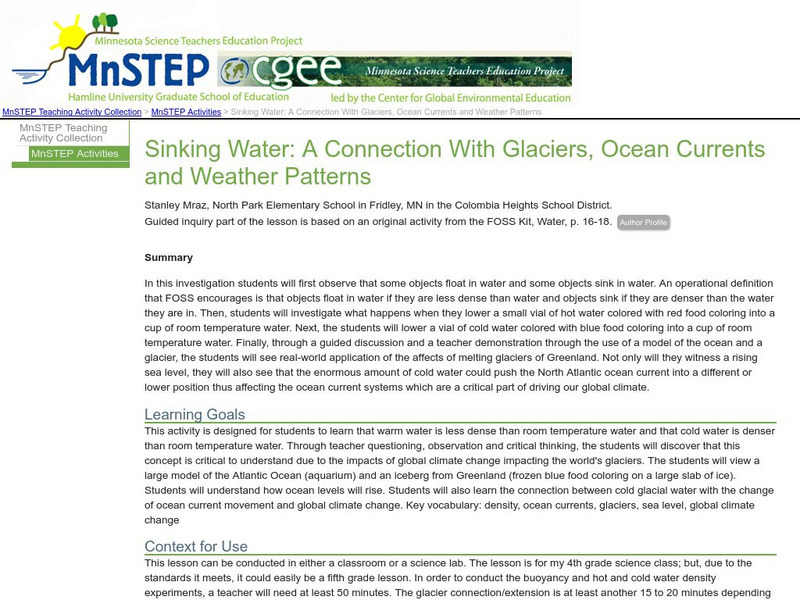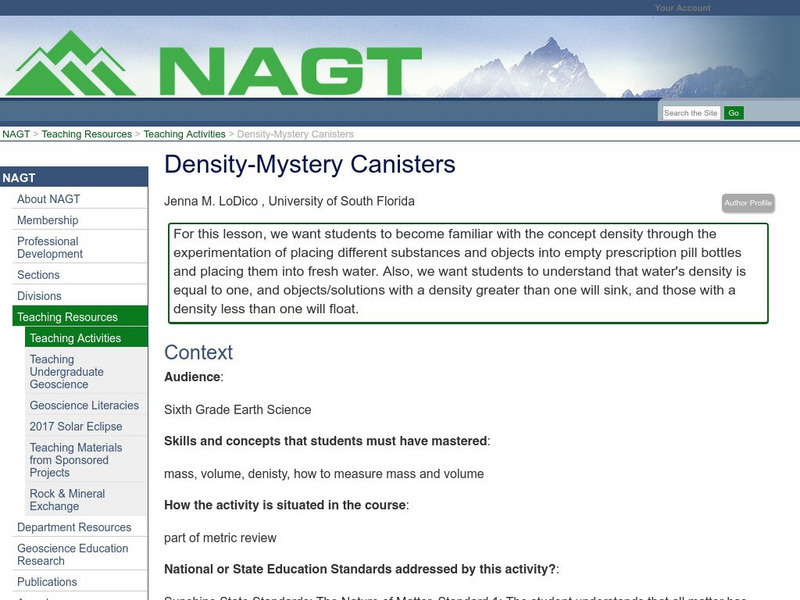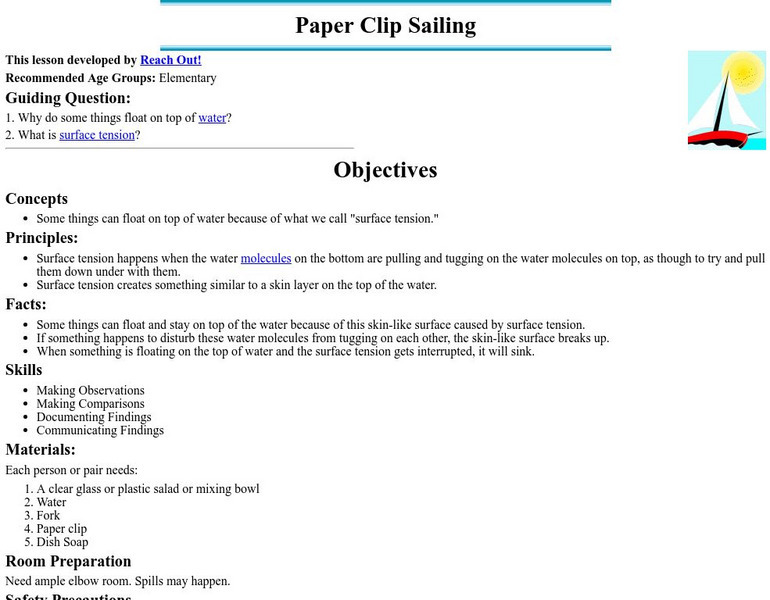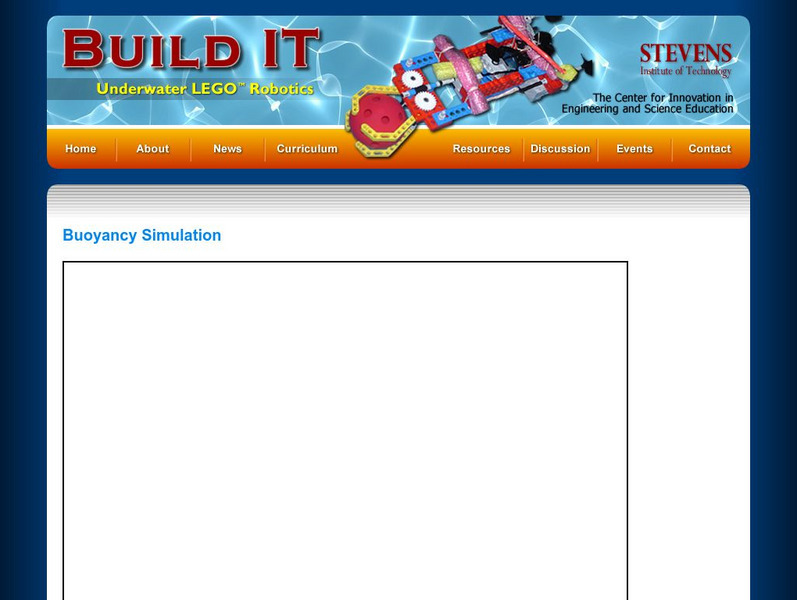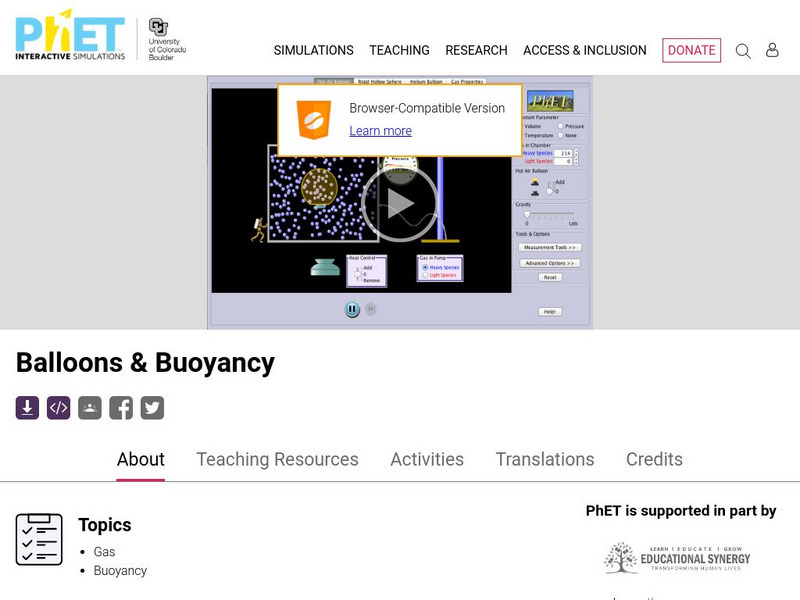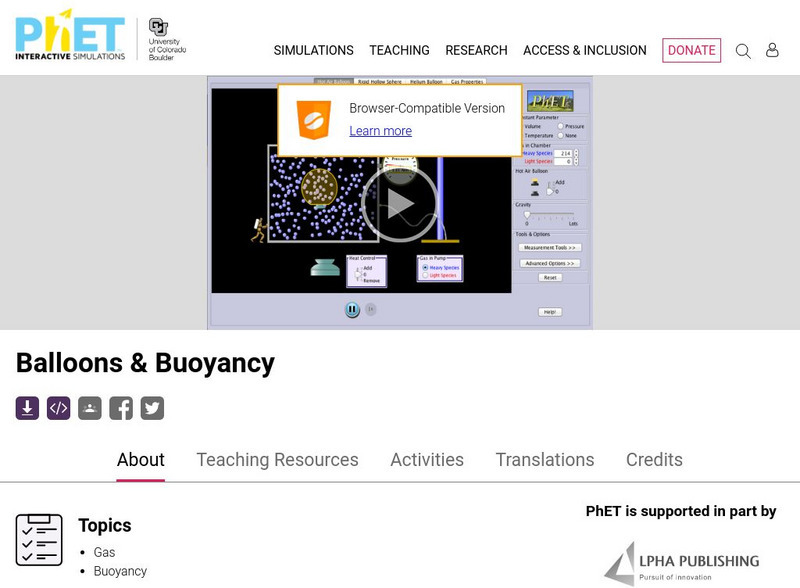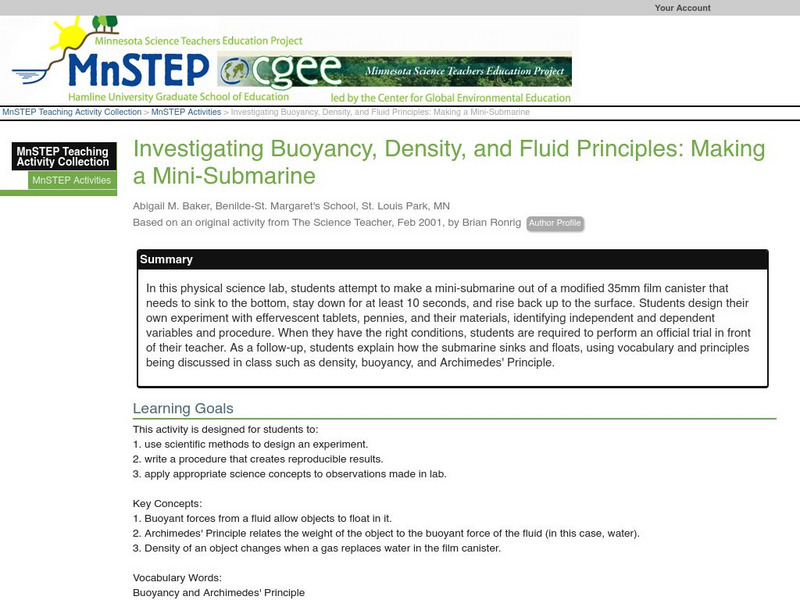Science Education Resource Center at Carleton College
Serc: Mn Step: Sinking and Floating Water
An experiment in density where colored water, both hot and cold, are poured into containers of water at room temperature. Young scholars will observe that the warm water rises and the cold water sinks due to their different densities.
Science is Fun
Science Is Fun: Sinking and Floating Soda Cans
An experiment to determine if either a regular or a diet can of soda will float or sink when placed in water, and what causes this.
Science Education Resource Center at Carleton College
Serc: Mn Step: Sink or Float: All Liquids Do Not Have the Same Density
An experiment in density. After a review of floating and sinking of different materials, students test four bottles, all holding four ounces of water, to see if they will float or sink. They each contain a different density of sugar...
Science is Fun
Science Is Fun: Bowling Balls Float or Sink?
In this experiment, you test whether two different bowling balls will float or sink, then determine the density of each of the balls to see if they are less than that of water.
Science is Fun
Fun Science: Sinking and Floating Soda Cans
Why do some pop cans float in water while others don't? This easy experiment is a great example of the principle of density.
Science Education Resource Center at Carleton College
Serc: Mn Step: Sinking Water: Glaciers, Ocean Currents and Weather Patterns
A lesson where students learn how warm water is less dense than cold water, and what this means for global climate change as ice from the polar regions melts. Students will do experiments in buoyancy and water density when hot or cold,...
PBS
Pbs Teachers: Submarine Race Experiment
Balance the force of gravity with the force of the expanding gasses created by mixing baking soda and vinegar. Create a soda bottle submarine that sinks to the bottom of the bathtub and then rises back to the surface.
National Association of Geoscience Teachers
Nagt: Density Mystery Canisters
Students experiment with items that sink or float, and learn that water's density is equal to one, and objects/solutions with a density greater than one will sink, and those with a density less than one will float.
Michigan Reach Out
University of Michigan: Paper Clip Sailing
Basic experiment that helps young scholars learn about surface tension.
Science is Fun
Science Is Fun: Dancing Raisins
An experiment in buoyancy which involves making raisins float by using carbonated soda pop. Students then try the same test with other materials. Instructions for making one's own carbonated liquid are also provided.
Science is Fun
Science Is Fun: The Cartesian Diver
A simple experiment in buoyancy where you discover how to make a packet of sauce or candy float or sink at will, and why you are able to do this.
Center for Innovation in Engineering and Science Education, Stevens Institute of Technology
Stevens Institute of Technology: Buoyancy Simulation
By choosing the mass, size, and time, students can experiment with whether the block floats or sinks in this simulation. Students have the option to display the forces and add a second block to the tank. Density is also shown to allow...
University of Colorado
University of Colorado: Ph Et Interactive Simulations: Balloons & Buoyancy
Experiment with a helium balloon, a hot air balloon, or a rigid sphere filled with different gases. Discover what makes some balloons float and others sink.
University of Colorado
University of Colorado: Ph Et Interactive Simulations: Balloons & Buoyancy
Students studying buoyancy will better understand its concepts with this virtual experiment using various balloons and testing what makes them float or sink.
Science Education Resource Center at Carleton College
Serc: Investigating Buoyancy, Density, and Fluid Principles: Make Mini Submarine
In this lab, students will use the scientific method to design an experiment that explains how/why a submarine floats and sinks.

